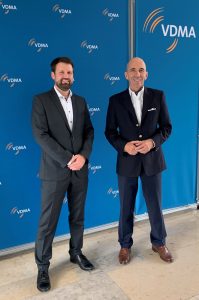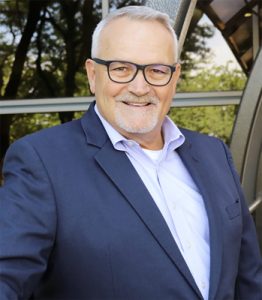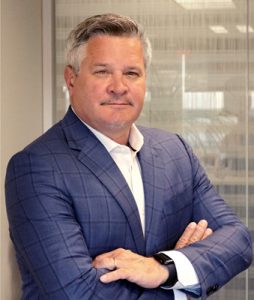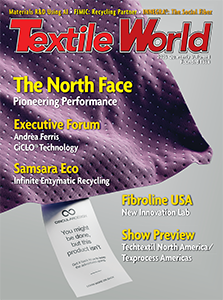BRESCIA, Italy — December 7, 2022 — Marzoli – a Camozzi Group company and supplier of complete spinning lines, components and digitalized solutions that optimize the performance in the spinning process, will exhibit at India ITME (Hall 11 – Booth C17), Greater Noida, Uttar Pradesh, December 8th-13, 2022.
India is playing a key role in the present global textile scenario and continues to be the enabling ground for the textile machinery manufacturers. We launched our branch, Marzoli India, more than 10 years ago with the aim of providing outstanding value to the market, and during ITME we will announce our 2025 strategic roadmap for the market.
Marzoli’s roadmap has the ambitious goal to shape the future of the Indian textile industry, focusing on 6 strategic pillars:
“Made in India”. Thanks to the assembly of machinery and systems in our plant in Coimbatore, we are increasing the production capacity for the whole product portfolio. By the end of 2023 we will achieve the full increment of 40%. A well-proven supply chain with international and local partners and a local stock of spare parts have been established to maintain the highest quality standards on the product and service. Well-trained and skilled engineers in Marzoli India guarantee the finest assembly of our machines complying with Marzoli Group’s well-proven procedures and a team of engineers support our customers on the market with commitment, starting from the internal assembling, factory testing, erection and final set up, creating a direct connection and flow of technical competences, delivering passion and the over 170 years of Marzoli textile culture.
Digitalization and AI. The long-term vision and innovative Digital journey, that Marzoli and Camozzi Group have designed in 2010, have made it possible to develop the first A.I. enabling platform dedicated to the textile industry. Our Digi4spin centre based in Marzoli India will support the customer through advanced remote services and training activities. Digi4spin will sustain the corporate’s organization for accelerating the digital transformation processes and culture through a specialized academy. As well as promote the adoption of A.I. technologies in the industry
Automation. More than 170 years of textile technology and optimization of the spinning process result in a strong commitment towards automation of production lines and processes. We firmly believe Automation, directly connected with Digitization and AI, constitute the enabling platform necessary to standardize quality, improve performances and productivity. The capability to fit an advanced automation system to the existing ecosystem, improving workplace conditions, workers engagement, while reducing wearing and alienating tasks, is a tailor made approach which Marzoli is going to deliver and promote through Marzoli India
Italian design. Being a brand that represents the Italian design excellence in the textile machinery sector means creating unique tailor-made solutions designed on customer needs which combine innovation and tradition, creativity and accuracy, reliability and out of the box approach, distinctive traits of the Italian culture. Innovation: in the development of new products and processes from a sustainable and digital point of view. Tradition: to fully take advantage of the experience and competences and transform them into a well-established know-how.
Customized engineering services. We want to address the needs of our customers with tailored solutions. We want to do this by intercepting and understanding the emerging trends, working in close contact with customers, research institutes, competence centers and technological suppliers to create value through a careful activity of engineering and networking. We want Marzoli India to be an open house for our customers, where different ecosystems can meet and share ideas to create disruptive concepts and solutions.
Circular economy. Make circular economy real, in the textile industry, is our vision. Our
mission: the development of circular technologies and processes to carefully balance economic and environmental sustainability. Marzoli India circularity program is aimed at promoting a supply chain alliance able to realize full industrial projects for the regeneration of valuable fibers from post-industrial and post-consumer fabrics.
“Differentiate ourselves to differentiate your business.” This is our mission and our everyday commitment.
Marzoli has spent the last ten years concentrating its efforts on research and innovation in order to develop an exclusive textile engineering concept that consists of four distinct, interconnected, and complementary technological areas:
– Spinning technology
– Digital textile
– Nonwoven solutions
– Circular technologies
The phrase “Textile Engineering” – incorporated in the Marzoli’s logo – perfectly expresses this ability to innovate and work in close contact with customers, supporting them to create value, providing the know-how able to support the customer throughout all phases of the process: from feasibility and preliminary studies to plant construction, line start-up, optimisation, management and subsequent commissioning. Added to this: staff training and organisation of maintenance activities; turnkey solutions and support in financing activities; business plan development; automation level analysis and project management.
This approach makes Marzoli the global partner for the textile industry of the future.
SPINNING TECHNOLOGY
Marzoli is one of the leading manufacturers of complete lines for opening, preparation and spinning of natural, synthetic and technical fibers.
At ITME, Marzoli will display the roving frame technology FT-D, which is pushing the limits of the performance: wide flexibility, high productivity, quality, space savings, power savings, full integration into any kind of spinning sections. High degree of automation and digital integration.
During the event there will be also the possibility to discover more about:
CMX: the new state-of-the-art combing technology which, with 10 combing heads, guarantees a level of productivity 25% higher than the previous model, along with energy savings equal to 20% kWh/kg. C701: The innovative and advanced card designed to be flexible for all types of fibers. With a carding area of 3.74 sqm this card grants a superior trade-off between quality and productivity. Integrated Spinning Technology: the concept of a full mechanical and logical integration of every machine of the spinning unit. These solutions disclose all their potential in terms of superior flexibility and efficiency, supported, for the first time in textile industry, by the technological paradigms of M2M and M2H.
DIGITAL TEXTILE
Another strength is its expertise in developing the most advanced digital technologies: at ITME, Marzoli will present 5 solutions for a fully digitalized spinning mill.
Marzoli (Marzoli Remote Maintenance): the world’s first AI based platform able to analyse Big Data generated by machinery processes and also to continuously monitor mission critical operations. This ensures a reduction of machine downtime, a longer useful life of parts, and more timely and effective maintenance.
Alongside this, integrated management can be enabled by YarNet, highly innovative software, through which users can easily manage the entire spinning process directly from their PC. With it, every machine in a plant can be monitored with ease – a real value-added technology for customers aiming to maximise productivity and profitability.
Brain Box: the patented Marzoli software with an integrated APP, based on AI technologies, which significantly improves plant performance. Tests confirm that Brain Box can generate a 5.5% increase in productivity, an 8% increase in efficiency, and 1.5% in energy savings.
TAOMAPP: the innovative approach to cotton analysis in which the trash level inside the cotton is accurately determined through photographs taken by a smartphone. It is based on ultra-high resolution image recognition techniques and quantifies the results on the Marzoli Trash Index. You just need to download the app, start the analysis and get the benefits.
Trash Analyzer: the tool that analyses cotton trash content to optimise machinery set-up. It can be applied wherever there is a flow of material in a pipeline. During ITME it will be possible to see first-hand this advanced technology
These 5 solutions, constantly monitoring machines and process performance, allows to make intelligent and informed decisions, based on constantly updated information. Each of these decisions is a further step to increase the flexibility and customization and to reach the highest level of efficiency and productivity to become more valuable on the market.
NONWOVEN
With its deep experience and technological knowledge in fibre preparation and through an established network of partnerships, Marzoli is uniquely qualified in the implementation of nonwoven plants for the following range of applications: wipes, medical-surgical, disposable and filtration products.
CIRCULAR TECHNOLOGY
Since 2012, Marzoli has focused on continuous innovation in the mechanical regeneration of textile fibres. Its know-how focuses on the transformation of post industrial and post consumer textile waste, creating high-value recycled fiber to be process with ring spinning tecnology.
“For Marzoli, developing and adopting green technologies means carefully balancing business needs with environmental sustainability. Circularity through fabrics regeneration is creating a synergetic value chain that benefits all stakeholders” explains Cristian Locatelli, Marzoli General Manager
Established in 1851 and part of the Textile Division of Camozzi Group since 1999, Marzoli is one of the major worldwide brands in the textile sector and a unique European manufacturer of complete machine lines for the opening, preparation and spinning of short-staple fiber.
From bale openers to ring spinning frames, Marzoli offers advanced technology for completely automated spinning mills. Through its global sales and service network, its expertise with each type of fiber and its application, as well as its experience of the entire manufacturing process, Marzoli represents a skilled and reliable partner.
Synergies with the digital capabilities of the Camozzi Group have enabled the development of software solutions that enable informed and optimized management of the spinning process.
Established in 1964, the Italian Camozzi Group is a global leader in the production of components and systems for high-tech industrial automation in the manufacturing, life science, robotics and mechatronics sectors. The Camozzi Group also produces specialist machine tools and provides expert additive manufacturing solutions for the aeronautics, space and energy industries. It operates across a variety of additional sectors from textiles machinery to raw materials processing, including composites, titanium and aluminium.
Continuous research and technological development are the basis of the Group’s corporate strategy and, combined with the use of IIOT digital solutions as well as our commitment to social responsibility, form the core principles that inspire the entire Group.
The Camozzi Group is represented in 78 countries worldwide, has 38 branches, 2956 employees, 5 operating divisions and 25 production sites.
Posted: December 7, 2022
Source: Marzoli – A Camozzi Group Company















